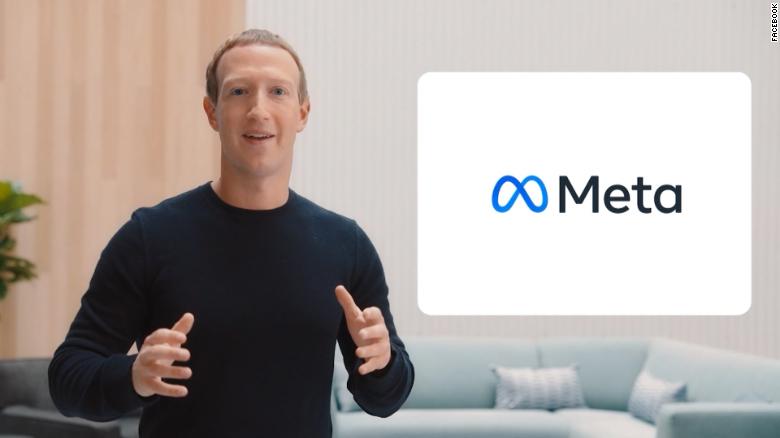MARKETS
begin quote from:
https://www.cnn.com/2021/10/30/tech/hebrew-speakers-mock-facebook-meta-rebrand-intl-scli/index.html
Hebrew speakers mock Facebook's corporate rebrand to Meta
By Sana Noor Haq, CNN
Updated 11:01 AM ET, Sat October 30, 2021
(CNN)Social media users in Israel are mocking Facebook's company name change to Meta, as it sounds similar to the Hebrew word for "dead."
Many Twitter users scoffed at the social media company's rebrand -- revealed by founder Mark Zuckerberg earlier this week -- using the hashtag #FacebookDead. "Somebody did not do their #branding research," one post read.
Dr Nirit Weiss-Blatt, author of The Techlash and Tech Crisis Communication, tweeted: "In Hebrew, *Meta* means *Dead* The Jewish community will ridicule this name for years to come."
"Grave error?? Facebook's new name Meta means dead in Hebrew. Hilarious. #FacebookDead" another user tweeted.
Zuckerberg's efforts to revamp Facebook come as the company faces what could be its most potent scandal since it launched in 2004.
The social media giant is under the spotlight following the publication this week of "The Facebook Papers," a series of internal documents obtained by 17 news organizations, including CNN, that underpin whistleblower Frances Haugen's claims the company is riddled with institutional shortcomings.
Enter your email to receive CNN's nightcap newsletter.
close dialog
The documents reveal how Facebook has propelled misinformation, struggled to eliminate human trafficking-related content on the site, and tried to increase its teenage audience, despite internal research suggesting that its platforms, especially Instagram, can have an adverse effect on their mental health.

Mark Zuckerberg's efforts to overhaul Facebook's public image come as the company faces what could be its worst scandal since launching in 2004.
Facebook isn't the first company to be ridiculed after its branding didn't translate abroad.
In 2019, Kim Kardashian West was accused of cultural appropriation after debuting her shapewear brand, which she initially named Kimono. Kardashian even appeared to have trademarked the word "kimono," a decision that the mayor of Kyoto, Daisaku Kadokawa, criticized in an open letter on Facebook.
"We think that the names for 'Kimono' are the asset shared with all humanity who love Kimono and its culture therefore they should not be monopolized," Kadokawa wrote.
Kardashian changed the name of her brand to Skims later that year.
In 2017, McDonald's name change in China raised eyebrows. Customers were left confused when the company swapped Maidanglao, a Chinese iteration of the English name, to Jingongmen, which loosely translates to "Golden Arches." One customer said it "sounds like a furniture store."
And when the Nissan Moco was launched in the early 2000s, Spanish-speaking customers may have looked twice, as the word "moco" translates to "bogey." Needless to say, the name was only used in Japan.

















No comments:
Post a Comment